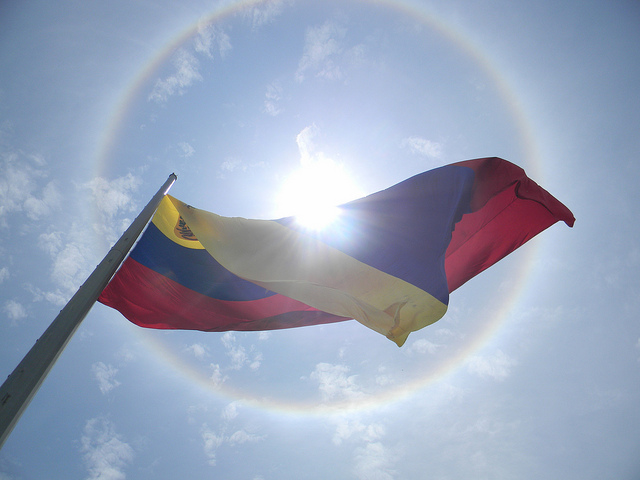
CARACAS, Venezuela — Venezuelans reached new levels of desperation Sunday as the country’s worst blackouts took their toll, gathering in larger numbers than usual at springs in the mountains of Caracas to collect water and scrounging for scarce cash to pay for food in the few shops that were open.
Engineers restored power in some places after electricity and communications shut down nationwide Thursday evening, but outages persisted in many areas where people are already beset by hyperinflation as well as shortages of food and medicine.
Witnesses reported overnight protests and confrontations with police in a few Caracas neighbourhoods and the remains of makeshift barricades and burned debris were seen at some intersections.
“If I could, I would take the little that I have and leave the country,” said Renee Martinez, a 31-year-old Caracas resident. “This is unbearable. Here, everything is scarce and now power is as well.”
Long lines of cars waited at the small number of gasoline stations with electricity. Some Venezuelan hospitals were caring for their most critically ill patients with the help of generators, but many operated without power, raising concerns about vulnerable patients who rely on oxygen concentrators, dialysis machines and other equipment.
The blackout has intensified the toxic political climate, with opposition leader Juan Guaido blaming alleged government corruption and mismanagement and President Nicolas Maduro accusing his U.S.-backed adversary of sabotaging the national grid.
Maduro on Sunday tweeted that he had taken steps to ensure the distribution of basic necessities, including food and water, to hospitals and other places. Information Minister Jorge Rodriguez said schools and public offices and industries would be closed Monday as the government works to revive the grid, but did not provide an update on progress.
Defence Minister Vladimir Padrino Lopez said the military deployed to protect Venezuela’s power installations from alleged saboteurs.
“We know who’s behind all this,” Padrino Lopez said, echoing the government line that the U.S. staged cyberattacks on Venezuela’s infrastructure. U.S. officials have dismissed the allegation as absurd.
Guaido, leader of the opposition-controlled National Assembly, said the government was covering up the impact of power cuts on the sick, making it hard to get accurate information. He cited reports that the deaths of 17 hospital patients, 15 of them in the city of Maturin, were linked to the outage, but did not provide details. Dr. Julio Castro, a doctor who supports Guaido, also referred to the 15 alleged deaths in Maturin.
Health Minister Carlos Alvarado did not mention the reported deaths in comments on state television. However, he said more than 90 per cent of generators that were part of a government contingency plan successfully provided power to Venezuelan hospitals, ensuring there were no major problems for seriously ill patients.
Independent confirmation of the alleged deaths was not immediately available. Venezuela’s opposing factions have continually sought to discredit each other as they seek an edge in a bitter contest for power being closely watched by much of the world.
The United States and about 50 other nations support Guaido’s claim that he is the interim president and that Maduro should resign so elections can be held and the more than 3 million Venezuelans who have fled their troubled country can start to return. Maduro, who counts Russia and Cuba as allies, says Guaido is a collaborator in a U.S. coup plot.
Many in Caracas were angry and desperate over the power failure. People are often seen at mountain springs because they don’t have running water at home and bottled water is too expensive, but hundreds crowded collection points Sunday. Some were there for the first time because water pumps weren’t working without power.
Alexis Reynoso said he left his home in the Venezuelan capital Sunday morning to try to buy water and food, but most shops were closed. He said those that were open only accepted cash, but he didn’t have enough because the bank only allows small withdrawals and debit card payments aren’t possible because of the outage.
With the bolivar, the local currency, in short supply, some people started to dip into stashes of dollars. University student Juan Gutierrez said Sunday lunch for his family cost $20, a small fortune in a country where the monthly minimum wage that most people earn amounts to less than $6.
“You have to pay in dollars and it’s so expensive for us,” Gutierrez said.